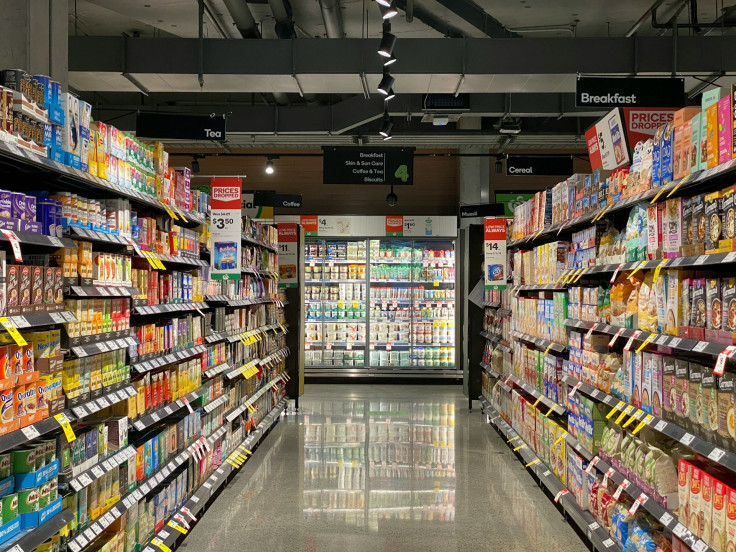Ultra-Processed Food: Global Experts Demand Tobacco-Style Warnings Now
Global experts warn Ultra-Processed Food is a health threat, linking it to 12 diseases including depression and Type 2 diabetes. They demand 'tobacco-style' government action now.

The biscuits you had with your morning tea, the crisps you snacked on at lunch, or the ready-meal you'll grab tonight could be contributing to one of the world's most urgent health crises. Ultra-processed food (UPF) , staples in modern diets, is now considered a global health threat, according to an international review of research.
The message from a group of global experts is clear: immediate action is crucial to slash the amount of UPFs consumed worldwide.
Our eating habits are drastically changing, with fresh, whole foods being displaced by inexpensive, highly-processed substitutes. This shift, the experts warn, is increasing the risk of a variety of serious chronic diseases, including obesity and depression.
Writing in the prestigious medical journal The Lancet, the researchers called on governments 'to step up' and implement stricter measures. These include mandatory health warnings and higher taxes on UPF products to generate revenue that can be used to subsidise and improve access to more nutritious foods.
The Science of Ultra-Processed Food: 12 Health Risks Identified
What exactly are we talking about? Ultra-processed foods are typically defined as those containing more than five ingredients that you wouldn't keep in your standard kitchen cupboard. These usually include industrial additives like emulsifiers, preservatives, dyes, and artificial sweeteners.
Familiar examples of these industrially-manufactured foods cover a vast range of supermarket products, from sausages and instant soups to fizzy drinks and even many loaves of supermarket bread.
Surveys worldwide have consistently shown that the consumption of these products is rising. This trend is effectively worsening the quality of our diets globally, leading to excessive intake of sugar, unhealthy fats, and critically low levels of fibre and protein.
A comprehensive review of evidence, compiled by 43 global experts and based on 104 long-term studies, suggests a worrying link between increased UPF consumption and a greater risk of 12 different health conditions. These adverse outcomes include Type 2 diabetes, cardiovascular disease, kidney disease, depression, and an elevated risk of dying prematurely from any cause.
Professor Carlos Monteiro from the University of Sao Paulo in Brazil, who developed the Nova classification system for foods, noted that this increasing consumption 'is reshaping diets worldwide, displacing fresh and minimally processed foods and meals'.
The professor added a direct challenge to the industry: 'This change in what people eat is fuelled by powerful global corporations who generate huge profits by prioritising ultra-processed products, supported by extensive marketing and political lobbying to stop effective public health policies to support healthy eating'.
Co-author Dr Phillip Baker of the University of Sydney suggested that the necessary response is a 'strong global public health response – like the coordinated efforts to challenge the tobacco industry'.
The expert review, however, does acknowledge a critical point: there is a lack of clinical trials to conclusively prove howUPFs specifically damage human health. Despite this, the authors contend that this gap in knowledge should not be a reason to delay action to safeguard global populations from potential health harms.
The Ultra-Processed Food Debate: Industry and Scientific Skepticism
Not all scientists agree that the link is definitive, and critics of the Nova system have raised questions about its scope. They argue that it focuses too heavily on the degree of processing rather than the overall nutritional value of the food.
For instance, items often considered nutritious, such as whole-grain bread, breakfast cereals, low-fat yoghurts, baby formula, and fish fingers, are all categorised as ultra-processed.
Professor Kevin McConway, an emeritus professor of applied statistics at the Open University, urged caution, stating: 'A study like this can find a correlation, but it can't be certain about cause and effect'. He added that there is still 'room for doubt and for clarification from further research'.
'It seems to me likely that at least some UPFs could cause increases in the risk of some chronic diseases. But this certainly doesn't establish that all UPFs increase disease risk,' Prof McConway concluded.
It remains unclear what specific components within ultra-processed foods are causing or contributing to diseases.
Prof Jules Griffin, from the University of Aberdeen, highlighted the need for more research to understand the positive sides of food processing and how it influences our health, stating it was 'urgently needed'.
The Food and Drink Federation (FDF), which represents the UK industry, maintains that UPFs can still be part of a balanced diet, giving examples like frozen peas and wholemeal bread.
Kate Halliwell, the FDF's chief scientific officer, noted that 'Companies have been making a series of changes over many years to make the food and drink we all buy healthier, in line with government guidelines'. She claimed that the industry has already cut the amount of sugar and salt in products sold in shops and supermarkets by a third since 2015.
Earlier this year, the UK's Scientific Advisory Committee on Nutrition expressed that the association between higher consumption of ultra-processed foods and adverse health outcomes was 'concerning'.
However, the committee admitted it was 'unclear' if these foods are unhealthy because of the processing itself or simply because many are intrinsically high in calories, saturated fat, salt, and free sugars.
The current UK government dietary advice remains focused on increasing fruit, vegetables, and fibre, while simultaneously reducing fat, salt, and sugar intake.
© Copyright IBTimes 2025. All rights reserved.




















